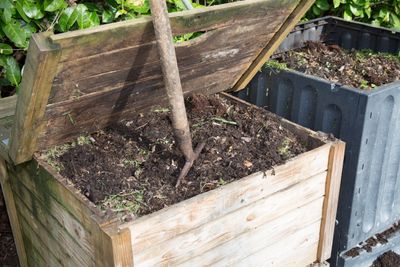Can Compost Get Old?
Composting is easy, but it does require a certain adherence to a 60/40 formula of green and brown material. Neglected compost can fail to break down, lose nutrients and even get moldy. Reviving old compost takes a bit of effort but can result in fairly good material for use in the garden. As the cold days of winter come to a close, you may wonder, “is my compost dead.” Compost can certainly get old. You can recognize old compost by its appearance. It will be dry, grayish and devoid of organisms that you can see, like earthworms and pillbugs.
Can You Revitalize Old Compost?
There are ways of reviving old compost, but it may still not be rich enough for seed starting or propagation due to the possible presence of insect pests or pathogens. But with careful management, it can still be an excellent additive to garden beds. Even if the compost has become inert, it is still an organic entity that will help aerate and add texture to heavy soils. If your compost has been sitting without attention for several months, it can still be brought back to life. Here are a few tips on revitalizing compost and capturing that vital resource for your plants: Mix in nitrogen sources, such as grass clippings, to jump start the cycle along with a slightly smaller amount of carbon rich organics, like dried leaf litter. Turn the pile 2 to 3 times per week and keep it moderately moist but not soggy. In a very short time, you should start seeing the visible organisms that help break down the material. In a sunny location, such a “recharged” pile will again be teeming with life and materials will be breaking down. For even faster composting, dig in your garden and harvest worms. Adding plenty of worms to the pile will cause the materials to break down even faster.
Using “Dead” Compost
If you don’t want to go to a lot of trouble and still want to use neglected compost, you can still do so provided it isn’t moldy. If it is moldy, spread it out in the sun for a week to kill mold spores and let it dry. Compost that is not moldy can be energized by the addition of some fertilizer. Use a time release formula and mix in gritty material if it is heavy and clumpy. You may have to manually break down any larger chunks. Alternatively, if you have the space, dig trenches in the garden soil and bury the compost. Over time, earthworms and other organisms in soil will break down the spent compost. It may not add a lot of nutrients, but it will certainly help with soil composition and make itself useful in that manner.
